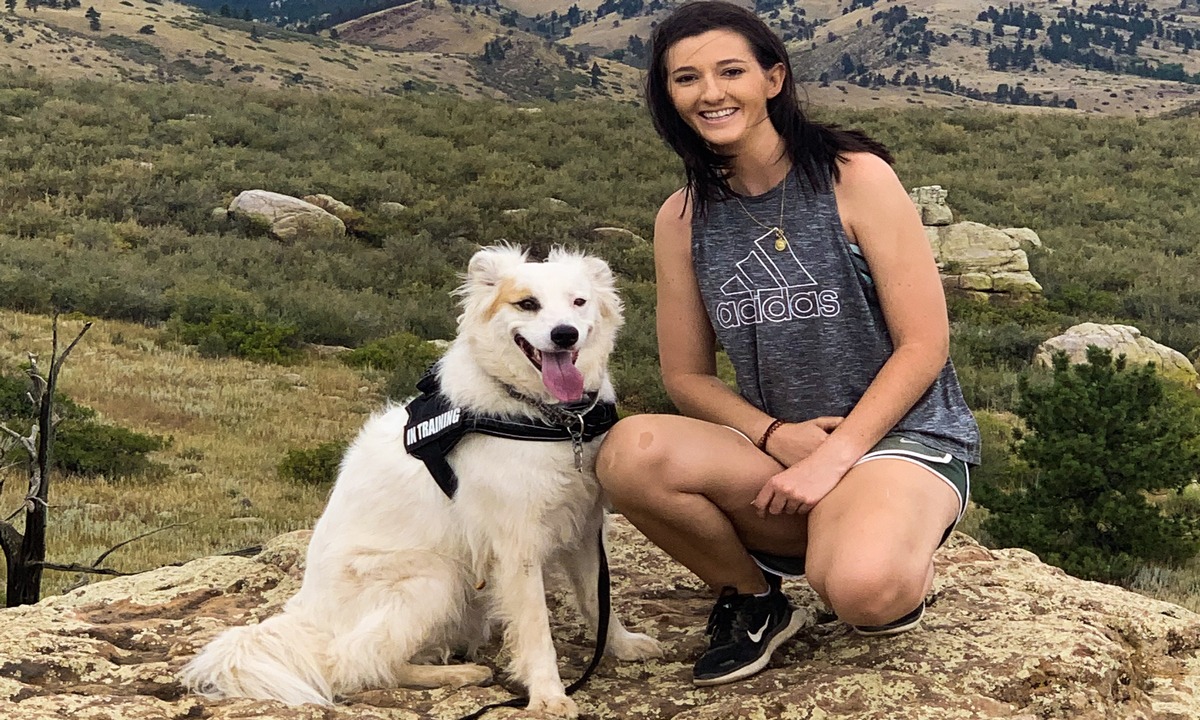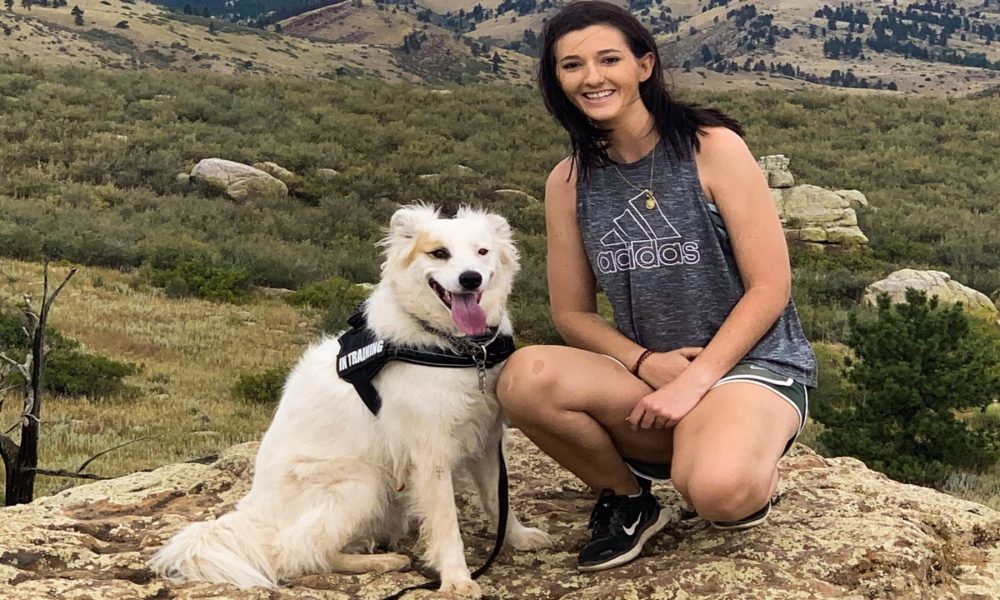December 2020 KPA CTP of the Month

Sarah really enjoyed the program, especially the regional program’s workshops where she got to know and spend time training with the other students in the course. “Everyone in my class had a completely different background and experience. It was really helpful to look at things from new perspectives,” she remembers. Relatively new to professional training, Sarah was eager to learn from others. “I found out how much I still needed to learn, how much I could learn from my peers.” When you think you “know everything,” reality and experience show you that there will always be something more to learn, according to Sarah. Completing the DTP program helped Sarah understand the lifelong learning process on a deeper level. She continues to be open to learning and growing within the profession, believing that those goals make for better trainers.
Before the KPA program, Sarah had worked part-time as an animal care technician in a shelter near Colorado State University. In the two years she was there, she learned quite a bit about canine behavior and “how simple changes could really make a difference for the dogs in my care.” Sarah’s assignments included everything from the daily care of all the dogs (feeding, potty breaks, cleaning, etc.) to helping potential adopters when they came in to see the dogs. She led meet-and-greets, helped unload and care for dogs that arrived at night, and assisted the veterinary staff as needed. “I handled many different dogs with varying personalities and temperaments. I learned to rely on my ability to read the dogs’ body language to get through sticky situations.”
At the shelter, Sarah completed a K9 Coach program that taught staff members and volunteers how to work with dogs on simple training concepts to improve their chances of being adopted: keep all four paws on the floor instead of jumping up at the gate, quiet behaviors, sitting at the front of the kennel, offering to “go to place” on their beds, harness and collar conditioning, loose-leash walking, and more. “This is important work,” Sarah says. “Learning to sit instead of jumping up could mean the difference between a dog finding a home and being passed over.”
Currently, Sarah is the Supervisor at K9 Wisdom Training and Consulting LLC in Loveland, Colorado. The business offers a range of services that includes group classes, private training, online classes, and an enrichment center day school. One of the biggest lessons Sarah took from the KPA DTP program and that she shares with her clients is the power and impact of clicker training. “For my clients, it changes the relationships they have with their dogs.” Sarah helps her clients resolve many canine problem behaviors by working with them to mend the human-dog connection. “Many dog behaviors that we perceive as problem behaviors are sometimes just normal dog behaviors. When my clients understand what their dogs are trying to communicate, they feel more compassion toward their dogs.” Emphasizing the power of communication, Sarah says that “the first steps toward an open line of communication are getting the humans to understand what the dogs are saying and getting the dogs to trust that the humans understand them.” With an open line of communication prioritized, Sarah and her clients can best address the issues that brought the client to Sarah. The process continues with Sarah referencing what she knows about the science of behavior, evaluating the various methods for teaching a concept, and working with the client, the dog, and the clicker to train the behavior. The evaluation process is the biggest part of Sarah’s job. She says, “My clients see me as a source of knowledge and a resource for tackling challenging situations.”
The clicker is important to Sarah and her instruction. She knew about the clicker prior to enrolling in the DTP program, and was happy to reinforce her skill and learn more of the science behind the marker. “Adding the clicker opens the line of communication people have with their furry friends. My favorite experience is seeing owners’ and dogs’ eyes light up when they connect to each other for the first time. Witnessing the strengthening of the human-canine bond is a special experience.”
Sarah believes that professional recognition has been one of the most important takeaways from the KPA DTP course. She was young (23) when she earned the KPA CTP certification and reports that family and friends “started taking me more seriously.” The certification offered clients the reassurance that they were working with a certified dog trainer “who knew what she was talking about!” Sarah advocates for certification within the dog training industry and says, “Karen Pryor Academy is a respected company within the industry.”

Sarah believes that professional recognition has been one of the most important takeaways from the KPA DTP course.

In her interactions with family and friends, Sarah relies on a scientific perspective and a positive-reinforcement approach. “With any problem, I try to look at things from all perspectives and to show compassion to the other party. Instead of focusing too much on the why, I turn my focus to the how and the now: how can we fix this or how can we make things better going forward?”
Thinking about the future, Sarah hopes to earn Dog Behavior Consultant certification. She also plans to work more with dogs with aggression issues, perhaps specializing in that area. Planning for a new puppy in the next year or two, Sarah is considering trying agility with that dog. Her current dog, Wrigley, has lower-back pain that prohibits sports. “I don't know much at all about teaching agility, or participating in it, so I look forward to that new experience.”
Sarah has a YouTube channel where she offers free advice for dog owners all over the world and has built a fun community. “I am curious to see where the channel will be five years from now.” Sarah’s plans include attending as many conferences as possible, building more contacts and relationships in the dog training world, and adding to her knowledge and expertise in canine behavior.

